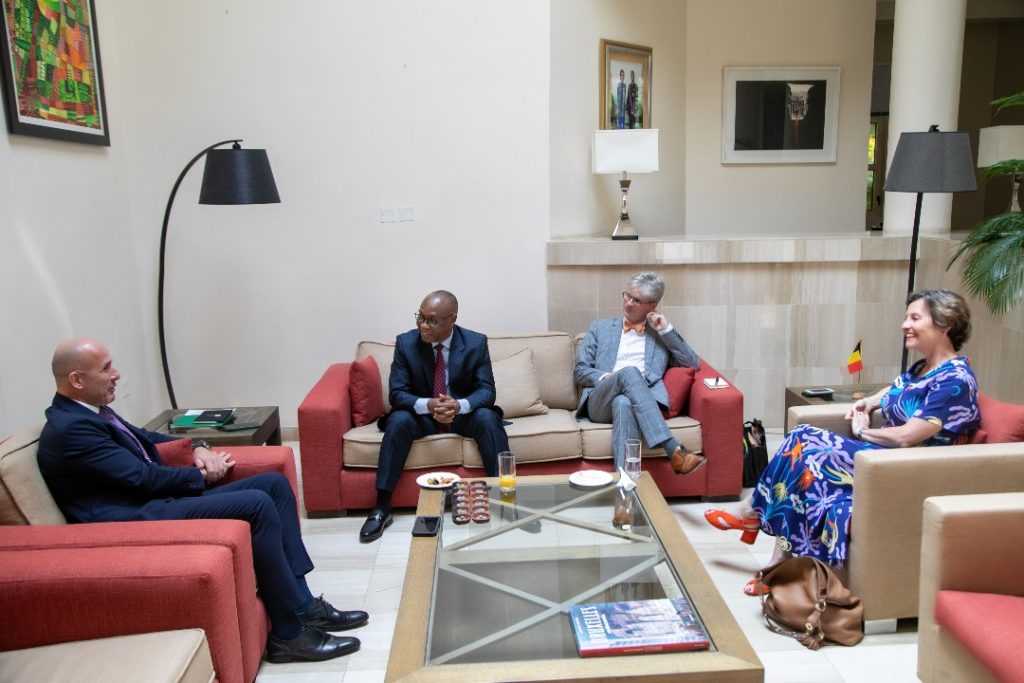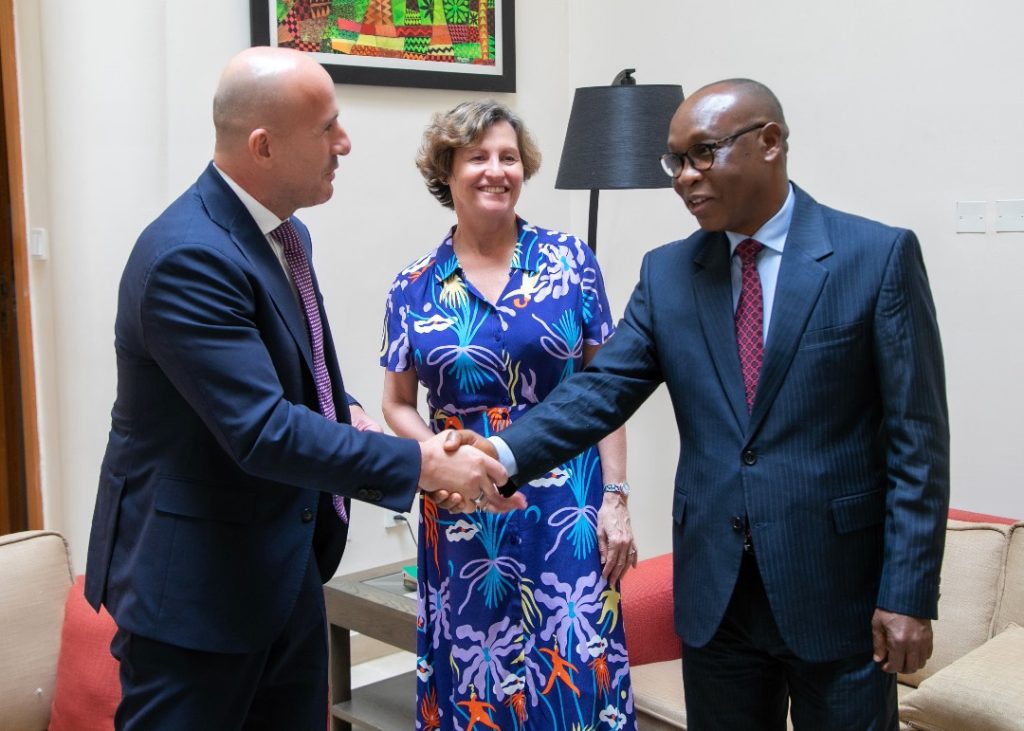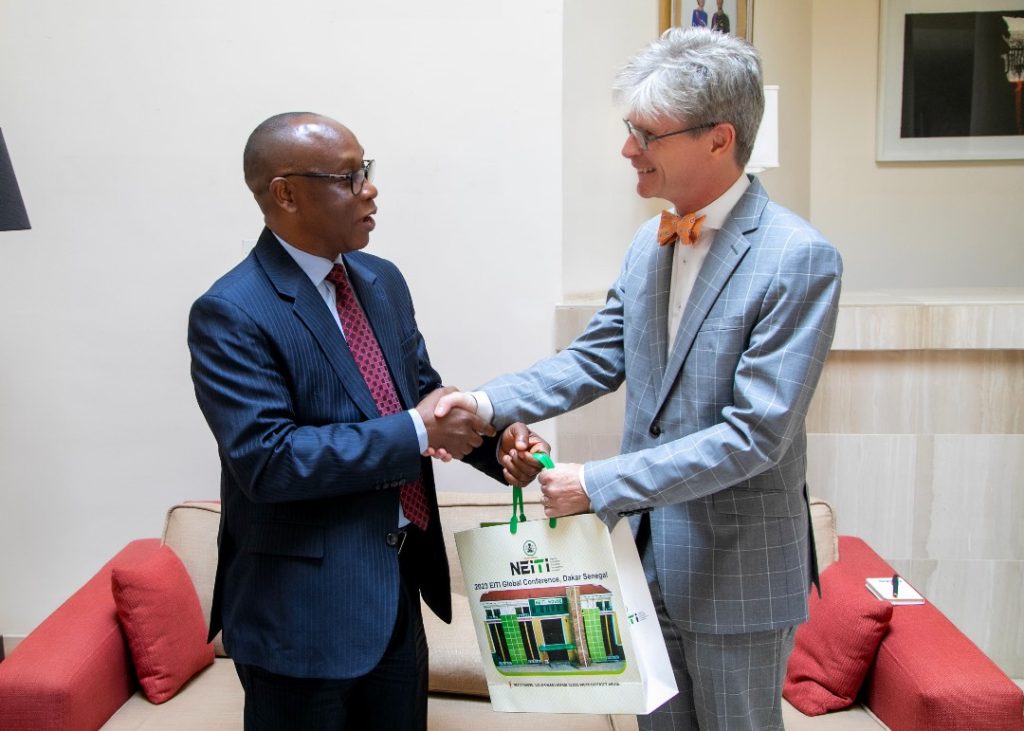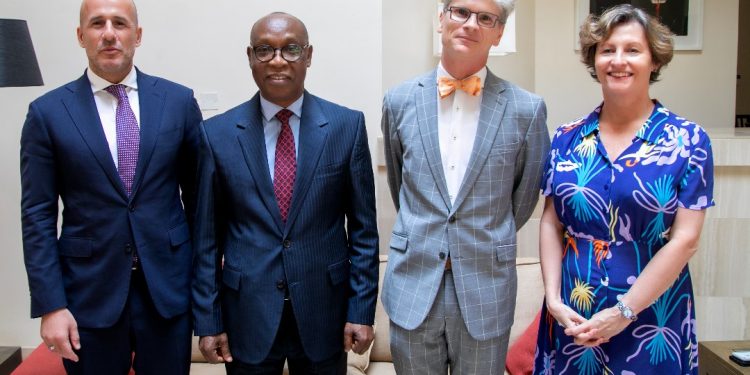Belgium, Canada, and Australia have pledged to work with the Nigeria Extractive Industries Transparency Initiative (NEITI) to build capacity to continue to promote transparency in the nation’s extractive industry.
The three countries made the pledge at a recent meeting in Abuja with NEITI’s Executive Secretary, Orji Ogbonnaya Orji, as part of efforts by the agency to forge strategic alliances with prominent diplomatic missions in Nigeria to boost its capacity to sustain the drive to deliver on its mandate in the extractive industry.
During the meeting, Orji said the trio pledged their support and readiness to strengthen NEITI’s commitment to offering technical assistance, pursuing governance reforms, and deepening their involvement in Nigeria’s oil, gas, and mining sectors development.
They made the pledge through the heads of their various diplomatic missions in Nigeria, including the Ambassador of the Kingdom of Belgium to Nigeria, Pieter Leenknegt; the High Commissioner of Canada, James Christoff, and the Chargé d’Affaires of the Australian High Commission, Leann Johnston.

L-R: Christoff, Orji, Leenknegt, and Johnson
Orji said the Ambassadors explained that over time they have closely monitored with keen interest NEITI’s performance and activities in the extractive sector, especially the publication of its annual audit reports in the oil and gas as well as the mining and Federation Account Disbursements to the three tiers of government in the country.
Also, the NEITI Chief said the envoys noted Nigeria’s commitment to implementing the principles of the global Extractive Industries Transparency Initiative (EITI) meant to ensure the people derived value from the exploitation of the natural resources in the extractive industry.
Specifically, he said the Ambassador of the Kingdom of Belgium to Nigeria, Pieter Leenknegt, commended the quality and depth of NEITI’s recently released 2021 Oil, Gas, and Solid Minerals Industry Reports, praising the groundbreaking disclosures on outstanding remittances by covered entities in an attempt to shore up government revenue.
Besides, he said Leenknegt was impressed by the incisive findings and recommendations, as well as NEITI’s overall courage in ensuring full public disclosures to enhance transparency and accountability in the sector.
Orji said the Belgian envoy pledged his country’s support to NEITI in the area of focused support for capacity building to expand the agency’s operations in the Solid Minerals sector to attract investors, especially from Belgium.
Leenknegt, he said, expressed contentment with the outcome of the meeting, recognizing Belgium’s interest in the global implementation of EITI in Nigeria.

L-R: Christoff, Johnson and Orji
On his part, Orji said the High Commissioner of Canada, James Christoff, welcomed Nigeria’s implementation of the EITI and identified the Solid Minerals sector as an area of special interest to his country.
He said Christoff emphasized that collaborating with a reputable transparency and accountability agency like NEITI would provide his mission with reliable information and data to assist potential Canadian investors in making informed business and investment decisions about Nigeria.
In addition, he said Christoff noted that as a supporting country to the global EITI, the Canadian High Commission in Nigeria was willing to partner directly with NEITI in the areas of information and data sharing, training, capacity building, and provision of technical support to facilitate the realization of its mandate in the extractive industry.
The High Commissioner, he said, expressed his contentment with NEITI’s close collaboration with Civil Society groups and the Federal Ministry of Solid Minerals Development in combating illegal mining activities through policy reforms and coordination.
Similarly, Orji said the Australian High Commission Chargé d’Affaires, Leann Johnston, welcomed Nigeria’s new policy on economic diversification and expressed confidence in NEITI to support this initiative with reliable information and data in the extractive industries, adding that a review of NEITI’s various audit reports so far inspires confidence.
In his response, the Executive Secretary of NEITI reaffirmed NEITI’s commitment to tackling obstacles to its assignment and mandate by working with relevant ministries and agencies to open up the solid minerals sector to the public engagement and debate required to implement groundbreaking reforms.
He announced that NEITI would continue to support the Ministry of Solid Minerals Development in reforming and repositioning the sector as an alternative revenue source in the Nigerian economy.
Orji described NEITI’s international affiliations, civil society partnerships, and government ownership as major strengths in the pursuit of its mandate.
He also announced NEITI’s plan to prioritize its attention on the solid minerals industry, which currently contributes less than 1% to Nigeria’s gross domestic product (GDP).
Orji expressed delight in the renewed interest and support from the Belgian, Canadian, and Australian embassies in the country’s extractive industry and economy.

L-R: Orji and Leenknegt
Established in 2004, the NEITI, which has the mandate to pursue and enthrone transparency, accountability, and good governance in the country’s oil, gas, and mining industries, occupies a significant position among key anti-corruption agencies at the Presidency.
NEITI is one of the leading members of the global extractive industries transparency initiative (EITI) whose International Headquarters is in Oslo Norway. The EITI principles are currently being implemented in 57 countries around the world.



